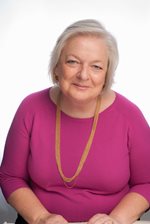The American Cancer Society’s 1989 "Report to the Nation on Cancer and the Poor" framed the basis for providing help for poor people who meet significant barriers when they attempt to seek diagnosis and treatment of cancer. The report states that “poor people often do not even seek care if they cannot pay for it and poor people experience more pain, suffering and death because of late stage disease” (p. 263). As a result of this report, Dr. Harold P. Freeman initiated the Patient Navigator Program at Harlem Hospital in New York City. He trained “lay navigators” to work with women of color with the hope of reducing the time from suspicious finding to confirmation of diagnosis and completion of treatment.
Patient Navigation has evolved from this successful program at Harlem Hospital to a national movement of care and guidance for patients. In 2005 the Patient Navigator Outreach and Chronic Disease Prevention Act was added to the Public Health Service Act. This act authorized a demonstration program to provide navigation services to reduce barriers and improve health care outcomes. From 2005-2010, the Patient Navigation Research Program demonstration programs funded by NCI, CMS and HRSA tested program models and tracked project outcomes that included reduction of time from screening to diagnosis, increased rates of treatment initiation, improved QOL and increased patient satisfaction with the health care system (National Cancer Institute, 2005).
In 2010, the Oncology Nursing Society, AOSW and NASW came together to write a Joint Position on the Role of Oncology Nursing and Oncology Social Work in Patient Navigation (AOSW, 2010). Embedded in that position were two important points:
- Patient outcomes are optimal when a social worker, nurse and lay navigator function as a multidisciplinary team, and
- Nurses and social workers in oncology who function in patient navigator roles do so based on the scope of practice for each of their disciplines.
So, do oncology social workers have an identity crisis or an opportunity here? Core competencies are being written for patient navigators, organizations are hosting training programs for patient navigators, exams to credential professionals and nonprofessionals are being created, scope of practice is being debated, patient navigation organizations and professional societies are forming and moving the concept of patient navigation forward—full speed.
Oncology social workers have an opportunity to educate others about the critical role that social work has in serving patients with cancer. We need to get on the bandwagon and declare our important role in the care of these patients. It is not enough to say that “social workers have always done this work” and perhaps go so far as to say that “we are the only profession that can do the work” or that “we do it best!” We need to be expert at the provision of psychosocial care for our patients. If we hold the title of Oncology Patient Navigator or Oncology Social Worker, we should be proud of our ability to navigate a patient through their cancer journey, addressing barriers that keep them from getting to the next phase of their treatment, connecting them to resources, working with communities to address gaps in resources and utilizing the tools that we have learned through our training, and embrace the tools and resources of our professional organization.
Perhaps we need to:
- Review the AOSW Scope of Practice to ascertain whether there should be a separate and distinct set of competencies for an oncology social worker practicing in a healthcare setting as a patient navigator.
- Consider recommending that a social worker entering into oncology practice as a social worker or patient navigator “should possess an OSW-C.”
- Expand upon the 2010 Joint Position noted above add that a social worker not only has a responsibility to provide the services within the scope of our practice but also must be a part of the team to provide the critical services to address the psychosocial challenges presented by patients.
- Delineate the aspects of care that we own as a profession.
- Mandate that a licensed healthcare professional (nurse and/or social worker) supervise any and all nonprofessional staff working as a patient navigator.
I don’t think we need to create a certification exam. But, to lend credibility to the knowledge we have and the work we do, we should strongly consider being clear that certification in our specialty through OSW-C applies to a social worker working as a patient navigator. We should declare patient navigation as a critical component of oncology social work and recognize the differences among nurse navigators, social workers as navigators and other trained generalists.
Are oncology social workers patient navigators? Yes, I believe oncology social workers are or can fulfill the role of patient navigator. As oncology patient navigators or oncology social workers we have a separate and distinct job to do. The competencies of a patient navigator are in line with our professional scope of practice; as a profession we have an obligation to outline the scope that separates and distinguishes us from a navigator who is a nurse or nonsocial worker. Whether we are called an oncology social worker or a patient navigator (or a counselor or mental health professional or something else), we must stay true to our professional roots and recognize the importance of our role in the care of oncology patients.

